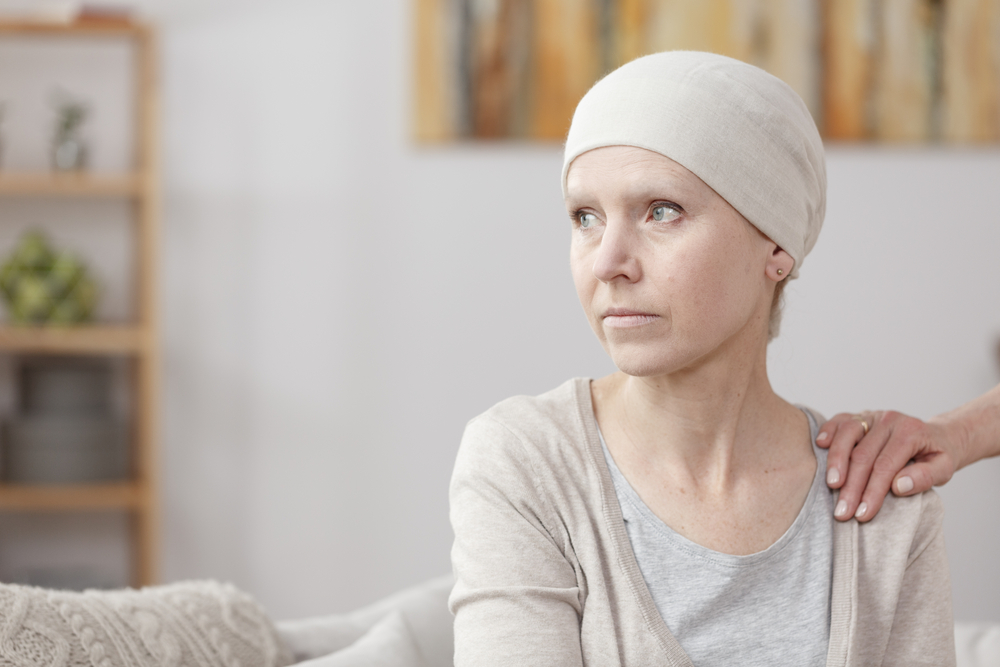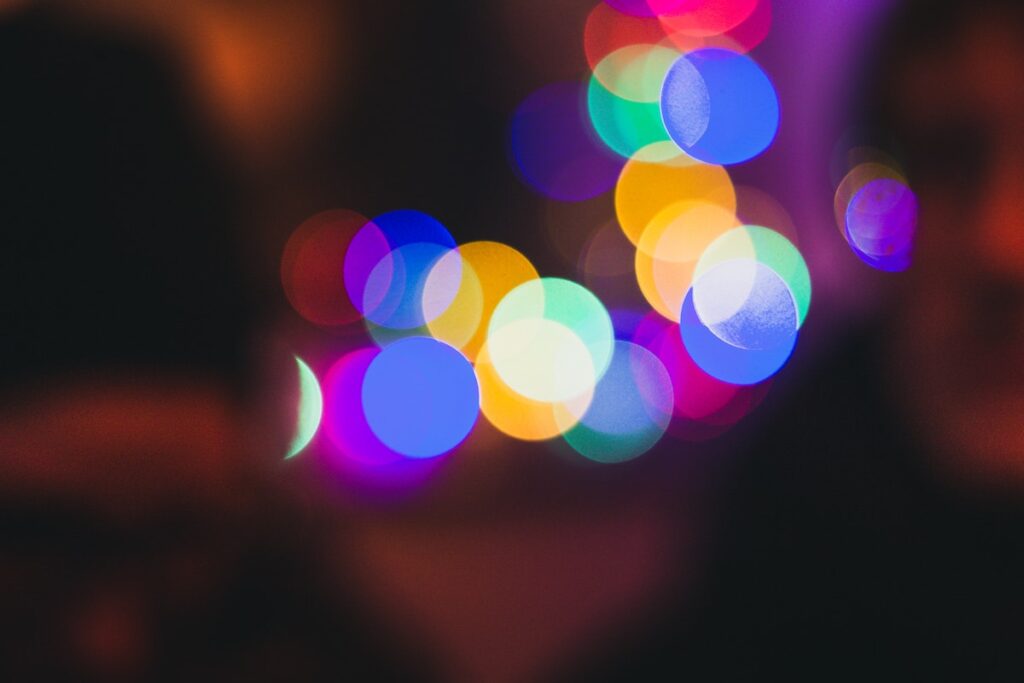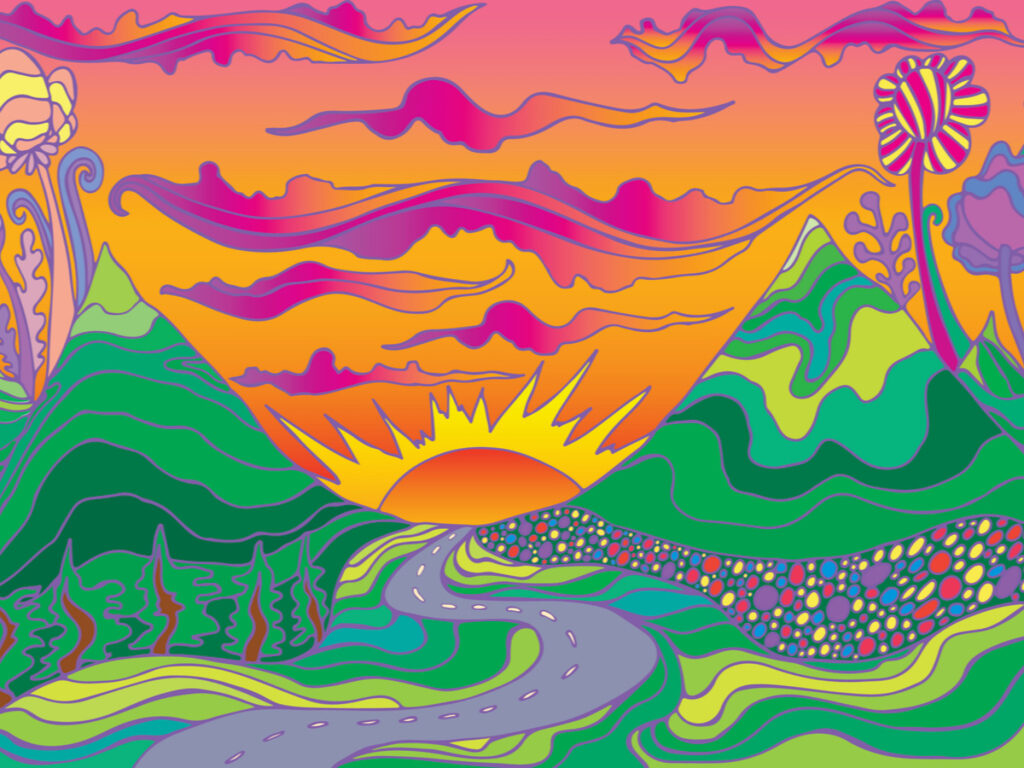
In 2016 Ross et al published a randomised controlled trial (RCT) comparing a single dose of psilocybin (the active ingredient of magic mushrooms and a Class A psychedelic substance) with a dose of niacin, both alongside a short course of psychotherapy, amongst patients suffering from the psychiatric and existential distress associated with life-threatening cancer. Not only were rapid reductions in depression and anxiety found with large effect sizes for up to 7 weeks, but also at 6.5 months 60-80% of patients qualified for clinically significant response. Additionally, improvements in quality of life, demoralisation, hopelessness, and spiritual wellbeing were sustained. 70% of participants said the experience was the single or one of the top-five most personally meaningful experiences of their lives; lives that were hanging in the balance.
There are about 14 million cancer diagnoses made every year, naturally provoking suffering on an existential level which medical providers are documented to neglect, despite the psychiatric symptoms being linked to poor survival rates, and even increased suicide (Gouveia et al, 2015; Amiri & Behnezhd et al, 2019). Given the limited efficacy of both psychotherapy and pharmacotherapy for this very complex presentation (Ostuzzi et al, 2015; Chochinov et al, 2011), it is imperative for psycho-oncology to explore more innovative strategies to address this deeply human sphere of suffering.
Ross et al (2016), as well as that published by Griffiths et al (2016) the same year, represent the latest in a cluster of recent clinical trials investigating the potential of psychedelic-assisted psychotherapy for those facing terminal diagnoses (Grob et al, 2011; Gasser et al, 2014). All these preliminary studies demonstrated an efficacy with medium to large effect sizes. This approach, though, is not entirely novel, and in fact constitutes part of the renaissance in the again blossoming field (previous Mental Elf blogs touch on this recent psychedelic upswell in psychiatry). In the 1950’s and 60’s prior to the abrupt legally-enforced hiatus, the application of psychedelics was shown to not only ameliorate cancer patients’ depression and anxiety, but also pain, sleep disturbance, and quality of life (Grof et al, 1973; Kast & Collins et al, 1970).
The longest follow-up analysis amongst the aforementioned studies was LSD and psychotherapy at 1 year post-crossover (Gasser et al, 2015). As such, Agin-Liebes et al (2020) conducted a long-term follow-up of the psilocybin and psychotherapy parent paper by Ross et al (2016), which acts as the focus of this blog.

Cancer diagnoses cause severe distress which is not being adequately addressed. Are psychedelics a viable alternative to help people cope with the distress that often accompanies cancer?
Methods
29 participants were enrolled on the parent study, of whom 16 were still alive and thus contacted at long-term follow-up (LTFU). Of these, 15 agreed to participate and complete all measures. 14 were included in the final study, due to one patient dying between follow-up timepoints. First and second LTFUs were at an average of 3.2 years and 4.5 years after psilocybin dosing, respectively.
In the original study, participants were randomly allocated to either 0.3mg/kg psilocybin on the first dosing date and 250mg niacin on the second, or vice versa, in a cross-over design involving swapping of group-allocations at 7 weeks. Both groups were also administered 9 preparatory and post-experience integratory psychotherapy sessions. Final outcome measurements occurred at 6.5 months after cross-over.
93% of patients qualified for “cancer-related adjustment disorder with anxious or depressive features”, and the remaining diagnosed with generalised anxiety disorder (GAD). 60% had early (Stage I-II) cancers at parent study endpoint, whereas by the second LTFU (of the present paper) 71% of patients entered partial or complete remission. 53% of patients had reported at least one previous experience using hallucinogens. Throughout the 4.5 year (average) follow-up time, 5 out of the 14 patients (39%) received some form of psychotherapy, while 3 (23%) reported medical prescriptions, which may have influenced LTFU findings.
Primary measures re-employed at the two LTFU timepoints consisted of 3 gold-standards in measuring depression and anxiety (HADS, STAI, BDI-II). Secondary outcomes included 7 questionnaires which assessed existential and spiritual wellbeing, quality of life, and the acute experience and lasting impact of the psilocybin experience.
Results
In terms of primary outcomes, significant decreases on all anxiety and depression-measuring scales compared to baseline were shown at both LTFU endpoints. At the second endpoint (4.5 years), 57% of patients demonstrated clinically significant response on the HADS-A, measuring anxiety, 71% evidenced significant amelioration in ‘psychological distress’, measured by the HADS-T, and up to 79% of participants showed remission of their depression symptoms.
Looking at the secondary outcomes, large reductions of statistical significance were also observed across hopelessness, demoralisation, and death anxiety at both LTFU timepoints versus baseline. Quality of life appeared to be sustained in some subscales, albeit not in others. At the final endpoint, significant improvements in spiritual well-being and faith were also seen.
Interestingly, the scores given for the mystical quality engendered by the original psilocybin experience did not correlate significantly with change-scores on any of the primary measures at the LTFUs (as it had in the parent study). However, 71% continued to rate the experience as the single or of one of the top-five most personally meaningful of their lives, and 96% reported it as the single or top-five most spiritually significant. 86% of participants attributed increases in life satisfaction or wellbeing to their psychedelic experience, with all 100% ascribing to it moderate to extreme positive changes to their actual behaviour.
Importantly, whether partial or complete remission transpired during the follow-up periods did not significantly interact with any scores on any outcome measure, implying that such positive after-effects were not associated with improvements in diagnosis circumstances, but may be associated with psilocybin treatment.

This small follow-up study points to the possibility that psilocybin-assisted psychotherapy may diminish cancer-related anxiety and depression in the long term.
Conclusions
This long-term follow-up (LTFU) analysis did not replicate the parent study’s correlation between improvements and the mystical experience. Given the continually accumulating support for this experience to predict therapeutic response across a diffuse array of conditions (Roseman et al, 2019; Griffiths et al, 2016; Bogenshutz et al, 2015; Garcia-Romeu et al, 2014), as well as the ‘death of the self’ as a putative subjective mediation of improved existential anxieties when facing death (Belser et al, 2017), it is likely that the reduced sample size by 50%, and thus power, occluded detection of the effect.
It was also identified that there was a positive correlation between time elapsed from dosing to final LTFU and improvements in depression. This interesting, albeit initially counter-intuitive finding, was not extensively discussed by the authors, though it could be owing to time allowing the opportunity for the necessary integration of the experience and its implications for one’s life (Neitzke-Spruill, 2019).
Given psychedelics being evidenced to generate brain activity of considerably enhanced entropy and signal diversity by disintegration of the default mode network (Carhart-Harris & Friston, 2019), as well as significantly increasing the personality trait of openness (Griffiths et al, 2016), including openness to new values and behaviour; such enhanced neural and psychological flexibility may be a crucial mediating mechanism after psilocybin-assisted psychotherapy (Roseman et al, 2016; Watts & Louma, 2020). Emotional breakthrough experiences (Roseman et al, 2019) and even challenging experiences (Barret et al, 2016) may also be instrumental.
The authors make the following encapsulating remark:
It is hopeful to consider the possibility that psilocybin-assisted psychotherapy could represent the first empirically-driven pharmacotherapy intervention to treat this indication.

There may be several interacting mechanisms by which psilocybin produces positive effects, such as the experience it elicits, the insight it offers, and the neural changes it produces.
Strengths and limitations
While acknowledging the very small sample size, study-design drawbacks and potential confounders, this study is still the first appearing to suggest that psilocybin-assisted psychotherapy for cancer-related distress may be associated with improvement up to 4.5 years post-treatment in anxiety, depression, hopelessness, demoralisation, death anxiety and spiritual wellbeing. What is certain is that the psychedelic experience did remain for the patients amongst their most personally and spiritually meaningful life-experiences.
The cross-over design may have allowed for assessment across both treatment groups together, but unfortunately does preclude comparison after the seven week point of re-dosing due to lack of control group. The much more narrowed sample size versus the parent study may also have amplified outlier effects and undermined generalisability, especially toward under-represented cultural and economic minority groups. That almost a quarter took medication, and over a third received psychotherapy in the follow-up period also cannot be neglected as potential contributors to patient improvement.

While the study design and sample size produce a caveat for the findings, this investigation is still pioneering in showing sustained long-term treatment effects.
Implications for practice
Cancer-related depression is a well-documented risk-factor for suicidal ideation, where the rapid and sustained antidepressant effects of psilocybin may make it additionally preventative of suicides. The authors cite some ecological studies demonstrating psychedelic use to be associated with lesser suicide risk, however significantly a more recent study of the Amazonian decoction ayahuasca suggests that it may be an intervention worth exploring further for the prevention of suicide (Zeifman et al, 2019).
The authors delineate that an ideal future study, improving on the original Ross et al (2016) trial, to most robustly assess the promising potential of psilocybin-assisted psychotherapy would include a sample size of at least 200 (versus the 29 of the original), representative of the cancer patient population (versus the mostly white females of the original), and as part of a randomised placebo-control design (versus the crossover of the original). Neuroimaging and neuroplasticity measures, as well as psychological outcomes such as personality, psychological flexibility, emotional breakthrough and challenging experience should also be incorporated to investigate the intervention’s diverse mechanisms of action.
If the phase III clinical trials for psilocybin-assisted psychotherapy for cancer-related existential distress were to be pursued and concluded positively, it could mean the adoption of this auspicious approach in clinical practice, and ultimately the alleviation of the suffering of those with presently scarce options available.

Further research with improved characteristics are needed to elucidate this novel psychotherapy for cancer patients as the effective treatment it has so far exhibited itself to be.
Statement of interests
The author of this blog is presently a PhD student researching psychedelics’ relationship to near-death experience at the University of Greenwich and declares no conflict of interests.
Links
Primary paper
Agin-Liebes, G. I., Malone, T., Yalch, M. M., Mennenga, S. E., Ponté, K. L., Guss, J., … & Ross, S. (2020). Long-term follow-up of psilocybin-assisted psychotherapy for psychiatric and existential distress in patients with life-threatening cancer. Journal of Psychopharmacology, 0269881119897615.
Other references
Belser, A. B., Agin-Liebes, G., Swift, T. C., Terrana, S., Devenot, N., Friedman, H. L., … & Ross, S. (2017). Patient experiences of psilocybin-assisted psychotherapy: an interpretative phenomenological analysis. Journal of Humanistic Psychology, 57(4), 354-388.
Neitzke-Spruill, L. (2019). Integrating the ineffable: a social phenomenological analysis of the psychedelic experience(Doctoral dissertation, University of Delaware).
Zeifman, R., Palhano-Fontes, F., Hallak, J., Nunes, E. A., Maia-de-Oliveira, J. P., & de Araujo, D. B. (2019). The Impact of Ayahuasca on Suicidality: Results From a Randomized Controlled Trial. Frontiers in Pharmacology, 10, 1325.
Photo credits
- Photo by Sharon McCutcheon on Unsplash
- Photo by National Cancer Institute on Unsplash
- Photo by mostafa meraji on Unsplash
- Photo by 4motions Werbeagentur on Unsplash
